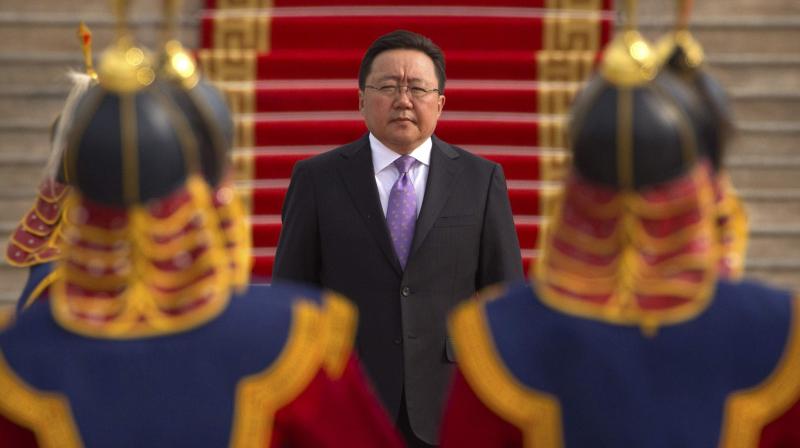Mongolians vote in their first presidential runoff
Mongolian election law stipulates that a candidate must garner at least 51 percent of the vote to secure the presidency.

Ulan Bator: Mongolians cast ballots on Friday in the country's first-ever presidential runoff after the first round of elections failed to produce a clear winner following campaigns tainted by corruption scandals.
Many voters in the vast, resource-rich nation of three million people sandwiched between Russia and China were so fed up with their politicians that they launched a campaign to submit blank ballots.
Businessman and judoka Khaltmaa Battulga of the opposition Democratic Party (DP), who led the first round, faces parliament speaker Mieygombo Enkhbold of the ruling Mongolian People's Party (MPP).
Enkhbold eked out a mere 0.1 percent victory over the Mongolian Revolutionary People's Party's Sainkhuu Ganbaatar in last week's election, which was mired in controversy.
Ganbaatar cried foul and demanded a recount, but the result was eventually confirmed.
Mongolians disillusioned by their politicians launched the "White Ballot" campaign, also dubbed "#WhiteChoice", to encourage people to vote blank.
Mongolian election law stipulates that a candidate must garner at least 51 percent of the vote to secure the presidency. If neither candidate reaches this number, the parties will be required to nominate different representatives for an entirely new election.
At the First Secondary School of Ulan Bator, a prestigious high school where a photo of Enkhbold hung in a hallway dedicated to famous alumni, a 30-year-old small business owner said he voted for Battulga.
"I will never vote for Enkhbold, because he sold the open spaces in our city," Byambiin Ragchaa said. "When he was mayor (of Ulan Bator), a weird building was constructed just in front of my apartment, and it blocked the sun."
- 'Toxic' promises -
Both Battulga and Enkhbold were linked to scandals ahead of the first-round vote.
A video showed Enkhbold and two MPP officials allegedly discussing a $60 billion tugrik ($25 million) plan for selling government positions.
Battulga was haunted by reports of offshore accounts attached to his name, as well as the arrests of several of his associates by Mongolia's anti-corruption body last spring.
But in the nearly two weeks between the first round and the runoff, public opinion appeared to turn in favour of the brash businessman, said Julian Dierkes, a Mongolia scholar at the University of British Columbia.
"It does seem a little bit like Enkhbold is, if not nosediving, certainly not on the upswing," Dierkes told AFP.
He noted that the MPP, which holds the majority of parliamentary seats but not the presidency, announced Tuesday that Mongolian parents would be a given a monthly 20,000 tugrik ($8) allowance for every child.
The move is at odds with the country's promise to limit mass cash handouts in order to meet the requirements of its $5.5 billion International Monetary Fund-led bailout.
As no campaigning was permitted between the two election rounds, the MPP's gesture gave Enkhbold's camp "a look of desperation," Dierkes said.
But Battulga's party had made its own share of promises: On Monday, DP officials pledged that if Battulga was elected, he would order the government to cover students' tuition loans and herders' debts.
Voters at the First Secondary School had mixed feelings about the cash commitments.
Naranbaatariin Ariungerel, a 20-year-old student who voted for Enkhbold, said "populist promises are just the way Mongolian politicians compete". "It's great that families have their child allowances," Ariungerel added.
But Boriin Batbold, a 46-year-old mining company translator, disagreed.
"Populist promises are toxic," Batbold said. "These promises might be effective only in the short term."

